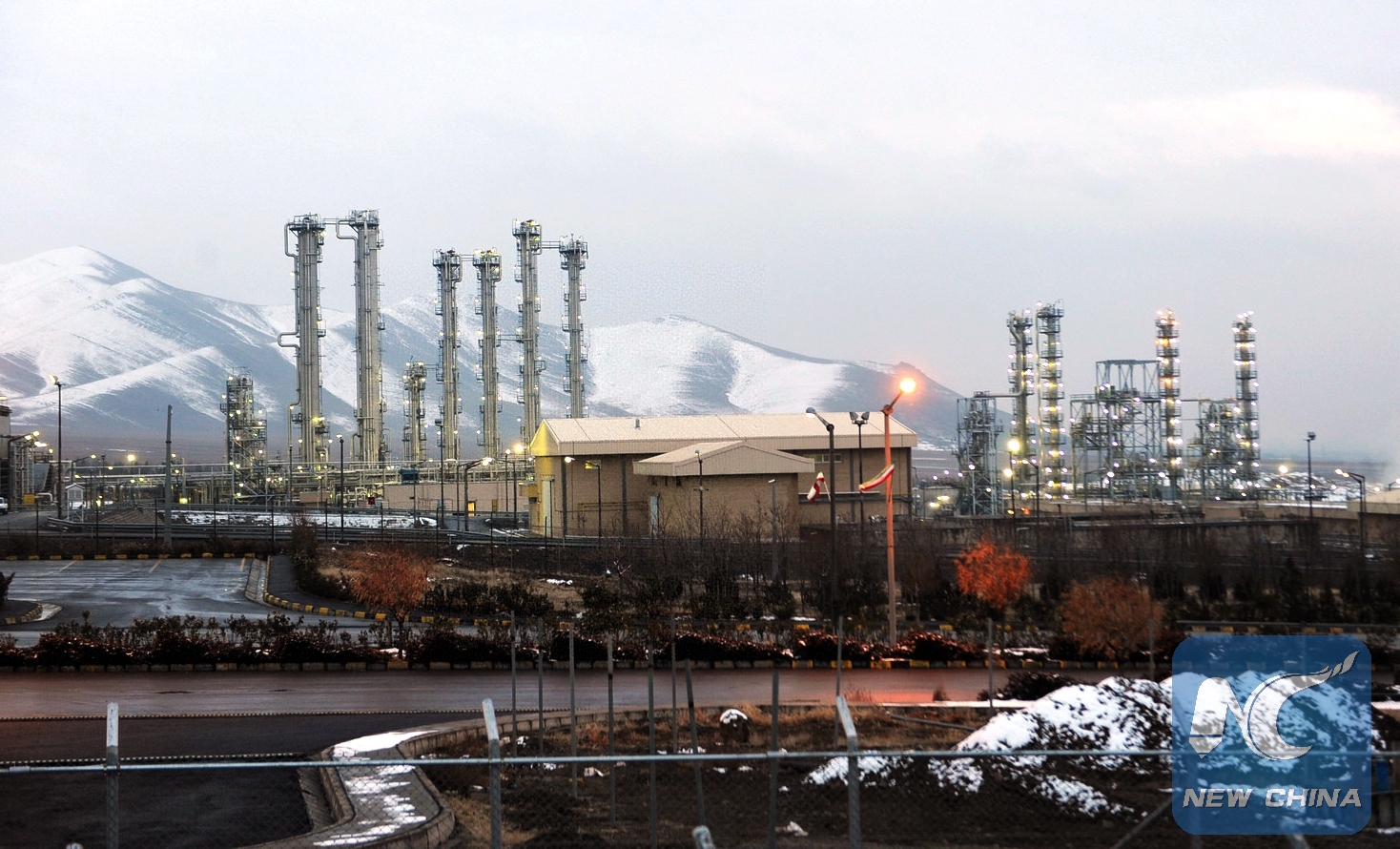 This file photo taken on January 15, 2011 shows a general view of the water facility at Arak south-west of the Iranian capital Tehran. (Photo by ISNA / AFP)
This file photo taken on January 15, 2011 shows a general view of the water facility at Arak south-west of the Iranian capital Tehran. (Photo by ISNA / AFP)
by Hassan Rouhvand
TEHRAN, July 6 (Xinhua) -- Iran has vowed to abandon more of its commitments pertaining to the 2015 landmark nuclear deal as of July 7 if the remaining signatories fail to uphold the deal, which analysts said will provide the United States an excuse to increase sanction pressures as a serve of its own interests.
Iranian President Hassan Rouhani said Wednesday that the Islamic republic would increase the purity of its enriched uranium beyond 3.67 percent, adding that "we will increase it based on our needs."
Rouhani also said that Iran's Arak heavy water nuclear reactor, which was agreed to be redesigned under the nuclear agreement, would resume its previous activities after July 7.
Under the Iranian nuclear deal, also known as the Joint Comprehensive Plan of Action (JCPOA), Iran agreed to redesign the 40-megawatt Arak research reactor to cut its potential output of plutonium.
Besides, Iranian Foreign Minister Mohammad Javad Zarif announced on Monday that Iran's low-grade enriched uranium stockpile had exceeded 300 kg, its first breach of limits set in the accord.
After one year of U.S. unilateral exit from the nuclear deal, Iran withdrew from implementing part of the nuclear deal on May 8 and threatened to take more actions in case Tehran's interests under the pact cannot be guaranteed.
At that time, Iran set a 60-day deadline for the Europeans to help the Islamic republic reap the economic benefits of the deal.
"If Iran reduces its commitments, the United States will use it to form a global consensus against Iran to increase sanction pressures," Yousef Molaee, the Iranian professor of International Law from Tehran University, said.
"The United States will achieve its goals (against Iran) quickly if we leave the JCPOA," said Molaee.
Iran will not benefit from driving the Europeans to the U.S. side, he pointed out.
Also, Morteza Maleki, the Iranian analyst of international affairs noted that "it is possible that Iran's reduction of nuclear commitments would create proximity of positions between Europe and the United States."
On Wednesday, Rouhani slammed the EU-designed payment channel, known as Instrument in Support of Trade Exchanges (INSTEX), as an "empty" mechanism, saying that "empty INSTEX is of no use for us ... it is void and nothing is in it" to protect Iran's interests under the 2015 nuclear deal.
He urged the EU to make INSTEX operational to supply Iran with petrodollars.
The European Union announced the launch of EU's special payment channel with Iran, namely INSTEX, in January to secure trade with Iran and skirt U.S. anti-Iran sanctions after Washington pulled out of the 2015 landmark Iranian nuclear deal in May 2018.
However, Iran has been cynical to the EU's "seriousness" and feasibility of the mechanism and has threatened that it will no longer wait for the Europeans under the U.S. pressures.
Molaee said that the European companies and private sectors are independent from their governments in their economic and trade contracts, as they have stopped their cooperation with Iran due to the U.S. pressures.
Under this condition, the European governments' attempts would not be so effective regarding the implementation of the INSTEX, he said.
Iran has announced that in case the U.S. re-endorses the deal or the Europeans take concrete steps to cushion the economic impact of the U.S. sanctions, Iran's actions are reversible.

